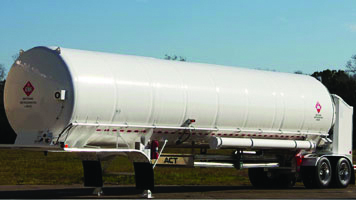Alaska Hydrogen Hub Proposal Submitted to U.S. Department of Energy

ACEP is among a group of organizations supporting the Alaska Gasline Development Corp.’s submission of a concept paper for an Alaska Hydrogen Hub to the U.S. Department of Energy.
The AGDC-led Alaska Hydrogen Hub concept is supported by Agrium U.S.; Salamatof Native Association; the Alaska Carbon Capture, Utilization and Storage Consortium (including Arctic Slope Regional Corp. Energy Services, Santos and Storegga); and the Alaska Center for Energy and Power.
Federal funding to create hydrogen hubs was included in the 2021 bipartisan infrastructure law, passed with the support of Alaska’s congressional delegation and signed by President Joe Biden. Grants are expected to be awarded in late 2023 or early 2024. DOE envisions selecting six to 10 hydrogen hubs and awarding up to $7 billion in federal funding for production and delivery of clean hydrogen energy to support U.S. emissions-reduction goals.
DOE guidelines require that projects produce a minimum of 50 tons of hydrogen per day. The Alaska Hydrogen Hub anticipates initially producing more than 600 tons per day, using natural gas feedstock from the Alaska liquefied natural gas project and sequestering the associated carbon. The hub’s capacity will eventually grow to 1,600 tons of hydrogen per day. The Alaska LNG project demonstrated through a comprehensive lifecycle analysis that it is the least carbon-intense LNG project in the U.S. The Alaska Hydrogen Hub will support hydrogen ecosystem growth over time from Alaska’s abundant renewable energy sources, including tidal, wind, hydro and geothermal energy.
DOE requires that applicants combine federal funding with project-specific funding. The Alaska Hydrogen Hub concept anticipates using $850 million in DOE funding, along with $3.75 billion in private sector funds, backed by offtake agreements from hydrogen customers in the U.S. and Asia.
Alaska has a number of advantages that make the region uniquely suited to host one of the new hydrogen hubs:
- Alaska’s North Slope is home to North America’s largest untapped source of natural gas, estimated at 200 trillion cubic feet, a key component for conventional hydrogen production. The AGDC-backed Alaska LNG project plans to transport that gas across Alaska for in-state consumption, including hydrogen production, and conversion to LNG for export.
- The benefits of producing low-carbon intensity hydrogen from natural gas are realized when carbon released in the production process is captured and safely stored in underground geologic formations. Alaska’s Cook Inlet, in the center of the Alaska Hydrogen Hub, has an estimated 50 gigatons of carbon sequestration capacity, the best carbon sequestration potential on the West Coast, according to geologists.
- Existing energy infrastructure, including an idle ammonia plant owned by Agrium, is located next to the planned Alaska LNG project LNG facility. Hydrogen in the form of conventional liquid ammonia emits no carbon dioxide when used to produce energy and is easier to store and transport than hydrogen gas.
For more information on the concept paper, please contact Tim Fitzpatrick at tfitzpatrick@agdc.us. For information on hydrogen energy in Alaska, join the Alaska Hydrogen Energy Working Group.
LNG tanker. ACEP file photo.


